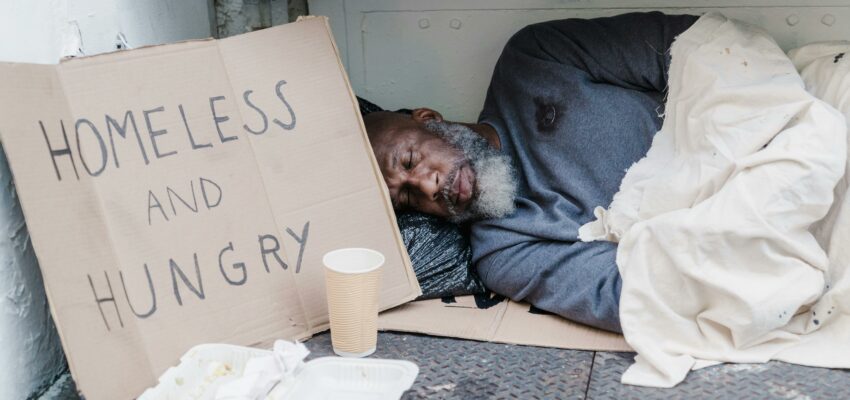
23 May
Navigating Jacksonville’s Panhandling Laws: A Legal Battle Unfolds
Panhandling refers to the act of soliciting donations or assistance from others, often in public spaces. The City of Jacksonville finds itself embroiled in a legal battle over its panhandling law. Let’s delve into the details:
Panhandling Laws and Constitutionality:
- Many U.S. cities have ordinances that restrict panhandling in some way. These laws may limit face-to-face soliciting on sidewalks, roadsides, or other public places.
- However, a growing string of court decisions has found that such laws are unconstitutional because they violate the freedom of speech. Courts have ruled that outlawing panhandling itself is illegal.
- In essence, the First Amendment protects panhandling as a form of charitable solicitation, akin to fundraising for nonprofits.
Importance of Panhandling Laws:
- Advocates argue that panhandling laws are essential for maintaining order and ensuring public safety. They aim to prevent aggressive or intimidating solicitation.
- Critics, on the other hand, emphasize that addressing the root causes of panhandling—such as lack of affordable housing, low wages, and inadequate healthcare—is more effective than punitive measures.
Lawsuit Background:
- The COSAC Foundation, an organization that supports the homeless, filed a lawsuit in February challenging Jacksonville’s panhandling law.
- The law, which has been in effect for about a year, prohibits soliciting or selling items on street corners.
- The foundation argues that this law violates their First Amendment rights of free speech.
Founder’s Perspective:
- Sean Cononie, founder of both the COSAC Foundation and the Homeless Voice Newspaper, believes that panhandlers should be able to ask for small amounts (like $1 for a sandwich or a bag of potato chips) without legal repercussions.
- The Homeless Voice Newspaper allows homeless individuals to sell newspapers written by and about the homeless.
- Cononie contends that the law is unconstitutional and has left about 10 workers in Jacksonville out of work since its enactment.
Legal Developments:

- The foundation sought a preliminary injunction to temporarily halt citations while the lawsuit proceeds. However, a federal judge denied the motion.
- The judge emphasized that this ruling does not predict the ultimate outcome of the case.
- Since the law’s enactment, there have been at least 700 verbal warnings, 24 citations, and 78 misdemeanor arrests related to panhandling violations.
Public Perception:
Some residents, like Sergio Mabusi, haven’t noticed significant changes since the law took effect. Panhandlers are still visible, especially near highway overpasses and entrances to places like the Walmart Plaza.
States Where Panhandling Is Illegal:
- While panhandling laws vary by city and state, it’s important to note that many of these laws are unenforceable due to constitutional protections.
- However, specific statutes exist in some states. For example, California Penal Code 647© makes it illegal to accost people in public to solicit donations (often referred to as panhandling). Violation of this statute is a misdemeanor punishable by up to one year in county jail.
- Panhandling laws in Florida vary across cities and municipalities, resulting in a patchwork of regulations. Here are some key points:
- St. Petersburg:
- Partially banned.
- Panhandling is prohibited after sunset or before sunrise.
- Aggressive panhandling is also unlawful at any time.
- Specific locations (such as bus stops, near ATMs, or private property without permission) are off-limits for panhandling.
- Orlando, Fort Lauderdale, Miami, Daytona Beach, Tampa, and Jacksonville:
- Panhandling is generally allowed but subject to restrictions.
- Aggressive panhandling (intimidating or threatening behavior) is prohibited.
- Some cities define “prohibited zones” where panhandling is restricted.
- Tallahassee:
- Panhandling is allowed, but aggressive panhandling is prohibited.
- The definition of panhandling includes solicitation for immediate donations, but passive actions (like holding a sign without vocal requests) are exempt.
- Statewide:
- Panhandling is a second-degree misdemeanor in Florida.
- Penalties include up to 60 days in jail and a fine of up to $500.
- Some areas issue permits for panhandling, with specific rules.
- St. Petersburg:
What Counts as Panhandling:
- Panhandling encompasses various actions, including:
- Verbal requests: Asking passersby for money or assistance.
- Holding signs: Displaying signs asking for help or donations.
- Aggressive solicitation: Behavior like repeatedly asking for donations, approaching people in pairs, or soliciting after sunset.
- The definition can vary based on local ordinances and court interpretations.
- Verbal requests: Asking passersby for money or assistance.
- Holding signs: Displaying signs asking for help or donations.
- Aggressive solicitation: Behavior like repeatedly asking for donations, approaching people in pairs, or soliciting after sunset.
In summary, while panhandling laws exist, their effectiveness and constitutionality remain subjects of debate. Addressing the underlying issues faced by those experiencing homelessness is crucial for meaningful change. If you have any more questions, feel free to ask!
